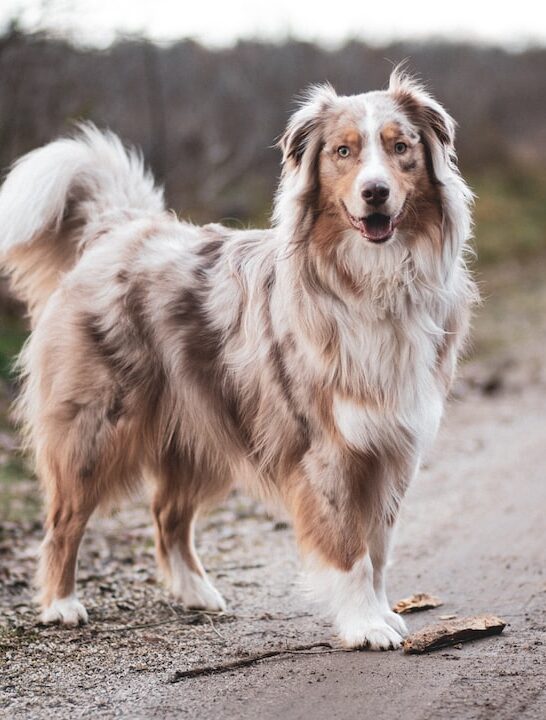How Many Puppies Can a German Shepherd Have
|
Prefer listening over reading? We got you covered!
Getting your Trinity Audio player ready...
|
Have you ever wondered how many puppies your German Shepherd dog can have? If you’re a proud owner or thinking about breeding, it’s important to know the factors that affect litter size.
In this article, we’ll explore the things that influence the number of puppies a German Shepherd can have, like the size and age of the female, the health of both parents, and how often the female gets pregnant.
We’ll also talk about average litter sizes and how the female’s size and health play a role. Whether you’re a breeder or simply curious, we’ll give you valuable insights and tips on preparing for the birth and caring for German Shepherd puppies.
Did You Know?
- The average number of puppies in a German Shepherd litter is five to eight puppies. The largest litter recorded had 15 puppies in it! German Shepherds can have smaller litter sizes, with as little as one puppy per litter.
- The size of the female dog influences the size of the litter. Larger females are able to carry more pups than smaller females.
- The age of the female dog affects her ability to get pregnant, and breeding before 7 years old is recommended.
- The health of the female German Shepherd dog is crucial for a successful pregnancy, and a high-quality diet before and during pregnancy is necessary.
How Many Puppies Can A German Shepherd Have?
The average number of puppies a German Shepherd can have in a litter is 5-8. However, it’s important to note that this number can vary.
Some German Shepherds have been known to have as many as 15 puppies in one litter, while the largest recorded German Shepherd litter had a whopping 17 puppies. Factors such as the size of the female dog, her health, and other genetic factors can influence the number of puppies in a litter.
Generally, larger female German Shepherds tend to have larger litters. It’s also worth mentioning that the age of the female and the male dog can play a role in determining the number of puppies. Breeding between the ages of 2-5 is optimal for a larger litter size.

Factors That Affect German Shepherd Litter Size
When breeding German Shepherds, the size of the female dog plays a significant role in determining the litter size. Larger female German Shepherds tend to carry more puppies compared to smaller ones. For example, a 100-pound German Shepherd may carry more puppies than a 70-pound one.
The number of puppies per litter and the overall litter size can be influenced by many factors. Generally, German Shepherds have an average of 5 to 8 puppies per litter, but there can be variations depending on different factors. Some dogs can have litters with 7 puppies; others can have bigger litters with 12 puppies.
Other factors that affect the amount of puppies include inbreeding, the age of the female and male dogs, and the health of the female. Considering these factors is important when breeding German Shepherds and predicting the number of puppies in a litter.
Frequency of German Shepherd Pregnancy
You can expect German Shepherds to have puppies twice a year, as their heat cycle occurs every 6 months. This means that they have the potential to have multiple litters in a year.
Here are some key points about the frequency of German Shepherd pregnancy:
1. Six-month heat cycle: German Shepherds go into heat every 6 months, which is when they’re fertile and can become pregnant.
2. Duration of heat: The heat cycle typically lasts 2 to 4 weeks, during which mating is essential for pregnancy to occur.
3. Planning mating: Breeders keep track of the timing of the heat cycle to plan the mating process and increase the chances of a successful pregnancy.
4. Twice a year: Due to the frequency of their heat cycles, German Shepherds can potentially have puppies twice a year.
Understanding the frequency of German Shepherd pregnancy is important for breeders and owners who want to plan for litters and ensure the health and well-being of the mother and puppies.

Size Of Female Can Affect The Number Of Puppies In A Litter
Larger female German Shepherds can carry more pups, with a 70-pound German Shepherd carrying fewer puppies than a 100-pound one. The size of the dog is an important factor in predicting litter size.
When breeding German Shepherds, it’s crucial to consider the size of the female. While the average litter size for German Shepherds is 5 to 8 puppies, the actual number can vary. Factors such as the size of the female and breed lineage can influence litter size.
It’s important to note that each dog’s reproductive capacity is unique. Consulting with a veterinarian can provide specific guidance on breeding and managing litter size.
Understanding the impact of female size on litter size is essential for breeders and individuals interested in German Shepherds.
Importance of Female Health for Successful Pregnancy
Taking care of a female German Shepherd’s health is crucial for a successful pregnancy. To ensure a healthy litter of puppies and an overall successful pregnancy, consider the following:
1. Provide a high-quality diet: A well-balanced and nutritious diet before and during pregnancy is essential for the female German Shepherd. Focus on specific amounts of protein, fat, and carbohydrates to meet her nutritional needs. Dietary supplements may also be necessary to ensure adequate nutrients.
2. Regular veterinary check-ups: Regular visits to the vet are important to monitor the female’s health throughout her pregnancy. The vet can provide guidance on vaccinations, parasite control, and overall health management.
3. Exercise and mental stimulation: Regular exercise and mental stimulation are crucial for the female’s physical and mental well-being. However, it’s essential to adjust the intensity and duration of exercise as the pregnancy progresses.
4. Stress management: Minimize stress factors in the female’s environment as stress can negatively impact her health and the pregnancy. Provide a calm and safe space for her to relax and rest
Preparing for Birth
Get ready to provide a comfortable and clean environment for your German Shepherd to give birth. Creating a safe space is crucial for the well-being of both the mother and her puppies.
Offer a whelping box with a heating pad or lamp to keep the puppies warm. This will help regulate their body temperature, as they’re unable to do so themselves. Make sure the mother has enough space during the birthing process, allowing her to move around comfortably.
It’s important to be prepared and have a veterinarian’s contact information on hand in case any complications arise. Also, ensure that the setting of the heating pad or lamp is safe for the puppies to prevent any accidents.
Puppy Growth Stages
It’s important to watch for different skills and behavioral milestones that will indicate if the puppy is developing the way it should.
The neonatal period describes the first three weeks of the puppy’s life. It is born completely helpless and depends on its mother for everything; it even needs her help to go to the bathroom.
The puppy will typically start to crawl when it is a week old, and its eyes will open a few days later.
The first baby teeth emerge when the puppy is two weeks old, and it will start going to the bathroom on its own around the same time. The socialization period lasts from the third to the twelfth week.
Then, when the puppy can move, see, and hear, it needs to learn the social skills that will enable it to successfully interact with humans and other dogs. However, it still needs to stay with its mother during this time, so she can teach it proper dog behavior and other vital life skills.
German Shepherds at this age should also be introduced to humans to begin getting used to their presence. They will generally begin playing with their littermates and their humans when they are about four weeks old. The puppy will be old enough for obedience school towards the end of the juvenile period.
Final Thoughts
So, if you’re wondering how many puppies a German Shepherd can have, it’s important to consider various factors such as the size and health of the female, the frequency of pregnancy, and the overall breeding process.
On average, a German Shepherd litter can consist of around 6 to 8 puppies. It’s crucial to prioritize the health and well-being of the female during pregnancy to ensure a successful birth.
With proper preparation and care, you can welcome adorable German Shepherd puppies into the world and provide them with the love and attention they deserve.






























